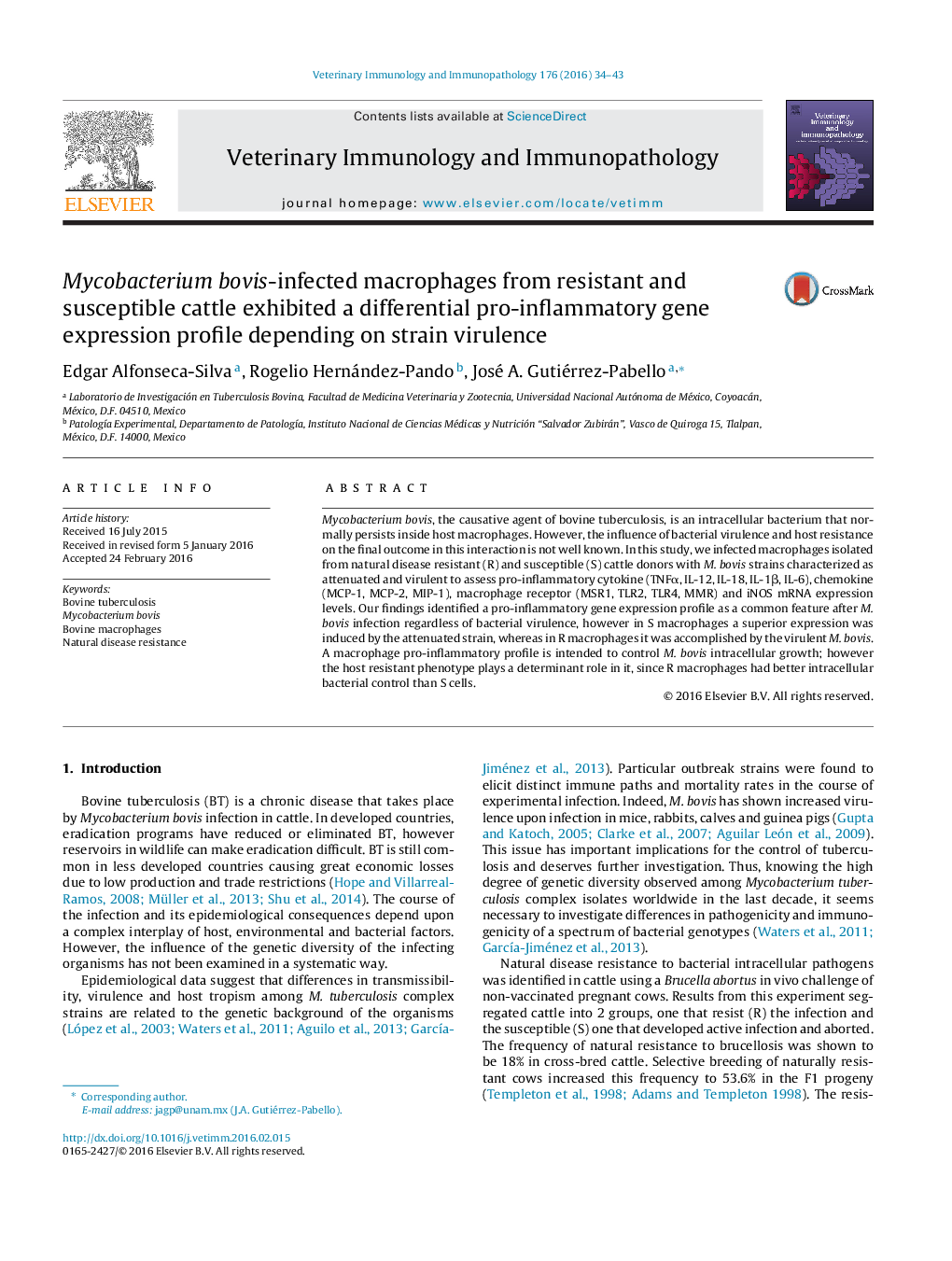| Article ID | Journal | Published Year | Pages | File Type |
|---|---|---|---|---|
| 2461329 | Veterinary Immunology and Immunopathology | 2016 | 10 Pages |
Mycobacterium bovis, the causative agent of bovine tuberculosis, is an intracellular bacterium that normally persists inside host macrophages. However, the influence of bacterial virulence and host resistance on the final outcome in this interaction is not well known. In this study, we infected macrophages isolated from natural disease resistant (R) and susceptible (S) cattle donors with M. bovis strains characterized as attenuated and virulent to assess pro-inflammatory cytokine (TNFα, IL-12, IL-18, IL-1β, IL-6), chemokine (MCP-1, MCP-2, MIP-1), macrophage receptor (MSR1, TLR2, TLR4, MMR) and iNOS mRNA expression levels. Our findings identified a pro-inflammatory gene expression profile as a common feature after M. bovis infection regardless of bacterial virulence, however in S macrophages a superior expression was induced by the attenuated strain, whereas in R macrophages it was accomplished by the virulent M. bovis. A macrophage pro-inflammatory profile is intended to control M. bovis intracellular growth; however the host resistant phenotype plays a determinant role in it, since R macrophages had better intracellular bacterial control than S cells.
